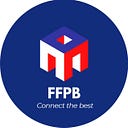Blockchain aspires to create a bottom-up, completely new, decentralized, censorship-free, low-fee, and fully automated basis of business transactions. What is more, blockchain is permissionless in the sense that anyone, regardless of social status or country of origin, can contribute code and use these open-source protocols.
Within the Supply Chain, particularly the Digital Supply Chain of the future, the possibilities for the application of Blockchain become more obvious.
Driving value in the supply chain management
The traditional management of the supply chain may have changed forever as COVID-19 increased awareness of its fragility.
There could be a significant paradigm shift across the supply chain with the promising opportunities that new technologies show. Thus, using blockchain in the supply chain can improve credibility and public trust of shared data, and reduce administrative costs.
An increasing number of large corporations and startups are exploring uses of the technology outside the financial services industry.
How can blockchain affect the supply chain?
1. Provides transparency
The coronavirus impacted inventory throughout the last couple of years, so it is essential to prepare for a variety of fulfillment options. Tracking and tracing is often a challenge for today’s supply chains due to outdated paper processes and disjointed data systems that slow communication.
Blockchain technology can be used to build applications that directly transact via a peer-to-peer network. This combats issues like counterfeit goods, compliance violations, poor communication, invisibility, delays, and waste.
2. Improves efficiency
Blockchain can streamline administrative processes and allow companies to complete transactions directly. All supply chain processes, from payments to logistics services, can be accelerated.
In addition, blockchain and smart contracts help companies enhance compliance, reduce legal fees and late tax payment fines, and curb counterfeiting and fraud.
3. Cuts cost from the supply chain infrastructure
Blockchain can drive cost-saving efficiencies and enhance the consumer experience through efficiency gains and reductions in stock loss and waste.
A distributed network that shares resources and transactions digitally is paperless. It also eliminates ancillary costs related to storage and labor required to process and manage physical documents.
What’s more, blockchain provides more ethical and sustainable sourcing.
Conclusion
Blockchain makes services more accessible to everyone. However, it is important to remember that this is still a developing technology that must overcome a number of significant challenges and risks. Technical risks, usability risks, centralization concerns, liquidity risks, and regulatory risks are among them. They are intrinsically linked and have an impact on one another.
Interested to learn more about blockchain?
Follow the French Federation of Blockchain Professionals. Our monthly newsletter features the latest news about the current state of the crypto market, new regulations and blockchain.
To have the latest news and initiatives, and so much more, delivered to your inbox on a monthly basis, click here.
